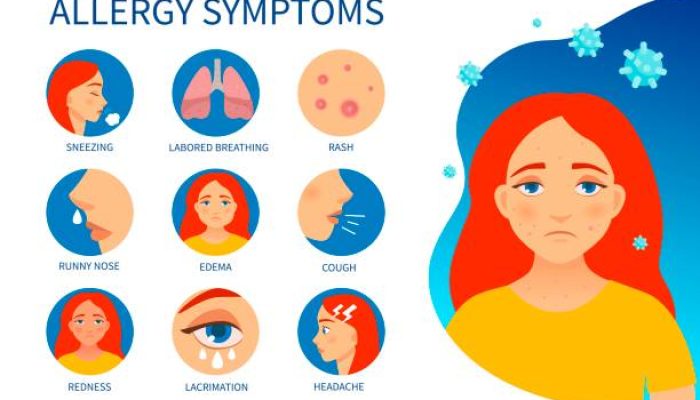
If you’re constantly battling sneezing, nasal congestion, or a runny nose, you might be facing more than just seasonal allergies. Allergic rhinitis and allergic rhinosinusitis are two of the most common but underdiagnosed ENT conditions affecting millions of people across India. At Global Cancer Hub, we understand how disruptive these issues can be—impacting your sleep, work performance, and overall quality of life. Our expert ENT team, led by Dr. Anil Kuril, specializes in accurately diagnosing and effectively managing these conditions using evidence-based, patient-friendly treatments.
This comprehensive guide will walk you through the signs, causes, diagnosis, and treatment options for allergic rhinitis and allergic rhinosinusitis, so you can breathe freely and live comfortably again.
Why Choose Global Cancer Hub for Allergic Rhinitis and Rhinosinusitis Treatment?
Global Cancer Hub is not just a cancer center—we are also a multi-specialty hub for advanced ENT care. Here’s why hundreds of patients trust us with their sinus and allergy-related issues:
- Expert ENT Surgeons: Led by renowned ENT surgeon Dr. Anil Kuril with decades of surgical and clinical experience.
- State-of-the-art Diagnostics: Accurate assessment using nasal endoscopy, allergy testing, and CT scans.
- Individualized Care: We customize every treatment plan based on patient history, severity of symptoms, and allergy triggers.
- Minimally Invasive Surgery: We offer modern solutions like FESS (Functional Endoscopic Sinus Surgery) for long-term relief.
- Trusted by Families: Our patient testimonials speak volumes about the compassionate and result-driven care we offer.
Common Signs & Symptoms of Allergic Rhinitis and Rhinosinusitis
Many patients confuse allergic rhinitis with the common cold, but persistent symptoms lasting more than a few weeks may indicate something more chronic:
- Continuous sneezing or nasal congestion
- Runny nose with clear mucus
- Itchy nose, throat, eyes, or ears
- Postnasal drip causing sore throat or cough
- Facial pressure or fullness, especially around the eyes
- Reduced sense of smell or taste
- Headaches, fatigue, or irritability
When allergic rhinitis becomes chronic, it can lead to allergic rhinosinusitis—causing inflammation of the sinus cavities, which results in facial pain, blocked nasal passages, and even ear pressure.
Diagnosis & Evaluation
A thorough diagnosis is crucial for effective treatment. At Global Cancer Hub, we follow a multi-step evaluation process:
- Patient History: Understanding symptom patterns, family history of allergies, and environmental exposures.
- Nasal Endoscopy: A detailed view inside the nasal passages and sinuses.
- Skin Prick or Blood Allergy Test: To detect specific allergens.
- Imaging Tests (CT scan): To check for sinus blockages, inflammation, or anatomical issues.
Accurate diagnosis helps differentiate between viral, bacterial, and allergic causes, ensuring you get the right treatment the first time.
Treatment Approach at Global Cancer Hub
We offer a multi-pronged strategy combining medications, lifestyle changes, and in some cases, surgical intervention.
1. Medical Management:
- Intranasal corticosteroids to reduce inflammation
- Oral antihistamines for symptom relief
- Decongestants to manage nasal blockage
- Saline nasal irrigation to cleanse allergens and mucus
2. Lifestyle Modifications:
- Allergen avoidance techniques
- Air purifiers for home and workspaces
- Regular steam inhalation
3. Immunotherapy (Allergy Shots or Tablets):
- For patients with severe or persistent symptoms not responding to conventional treatments.
Our focus is always on long-term symptom control and prevention of recurrence.
Advanced Surgical Techniques for Severe Cases
If your allergic rhinosinusitis is causing recurrent sinus infections, polyps, or major anatomical blockages, surgery may be necessary:
- Functional Endoscopic Sinus Surgery (FESS): A minimally invasive procedure that restores normal drainage by removing polyps and correcting anatomical defects.
- Turbinate Reduction: Reduces the size of the turbinates to improve airflow.
- Balloon Sinuplasty: Gently opens blocked sinuses using a balloon catheter.
These surgeries are performed with high precision using endoscopic visualization and result in minimal downtime.
Recovery, Follow-up & Long-Term Support
Post-treatment care is just as important as diagnosis. At Global Cancer Hub, our team offers:
- Scheduled follow-ups for medication adjustment
- Continuous monitoring of allergy symptoms
- Nutritional and lifestyle guidance
- Ongoing support for patients undergoing immunotherapy
Our patient-first approach ensures you receive continued care and attention for long-lasting results.
Frequently Asked Questions (FAQs)
The main cause is exposure to allergens like dust mites, pollen, pet dander, or mold that trigger an immune response.
Yes, untreated allergic rhinitis can lead to chronic inflammation and blockages, resulting in allergic rhinosinusitis.
Not always. Surgery is only considered when medical management fails or when there are structural issues like polyps.
Most patients recover within 1–2 weeks with significant symptom improvement and minimal complications.
Yes, immunotherapy helps desensitize the immune system over time and can provide long-term control of allergic symptoms.
